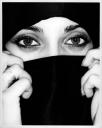Yes, I saw the movie Beaches several times. And I cried when Barbara Hershey died. I really liked Bette Midler’s song “Did you ever know that you’re my heroooooooooo? You’re everything I would like to beeeeeeeeeee?” I liked it so much that whenever I think about my favorite show “Heroes” Bette Midler’s voice rings in my head.
I normally don’t watch network television. In fact for a few years I didn’t have a t.v. However when I got back from my first trip from Morocco, I think I sat for three days in front of the t.v. watching the C.S.I. marathon.

Maybe it was about decompressing and the culture shock of being back. Maybe it was about the profound changes that I was going through. But when I got to campus we had cable for a year. Then, it was off and I watched P.B.S. for another year. I’d get all excited about Masterpiece theatre. Then, my roommate got cable, not because she particularly liked zoning out, but because we needed cable internet access. So, there I was with basic cable. I was hooked to HGTV. I watched MTV, VH-1, and of course C.S.I. I preferred the Vegas over the Miami. But I’d watch Miami just because of Alex Rodrigues. Yes, even David Caruso grew on me.

Truthfully, I’m very ashamed of my tv viewing habits. Yes, I saw all of Flavor of Love and I Love New York. I was appalled, but still glued to it. My t.v. viewing habits became the polar opposite of my other pursuits. My writing and research was so intellectually challenging, I found t.v. a time to dumb my mind. Most shows I found stupid or corney. I always had a disdain for network television. I tried to get into Lost. But I found the plot lines far fetched, I wanted to fast forward to figure out the mysteries. Mainly, I felt like they were pulling my leg in order to get me to watch the show for the entire season. So, when I saw previews for Heroes, I had my doubts.

Then, I watched the first episode on Sci-Fi. Yes I watched Sci-Fi and even saw the marathon Battle Star Gallactica. But after the second episode of Heroes I was hooked. Monday nights, I rushed home to watch it. Sad thing was that during the mid season break, I was able to attend the Monday night Muslim Student Action Network meetings. But when the show came back on, I couldn’t deal with the pixelated choppy online version. I couldn’t break away and I don’t have Tivo. I know it is a weak excuse, sigh.
One of the things that made me sad about leaving the states for abroad was that I knew I wouldn’t be able to watch Heroes. My friend said I could get episode on iTunes. But I couldn’t find them. I began searching online and YouTube had them. Of course the connection is slow. So, I’d line up 6 YouTube videos to download and wait. It has become a Monday night treat for me. On my computer, in a room, somewhere in the Middle East, a Muslim American girl is viewing pirated shows. The trade off is that the video quality sucks. It sucked so bad that I was unable to recognize Peter when they found him in the boxcar shipping container. I really didn’t recognize him at all until maybe the next episode. He looks less nerdy and more cut, but that’s Peter Petrelli all right.
Besides Heroes, I go online to watch Little Mosque on the Prairie. Season 2 is better, but it is still corney and kind of funny. Well, if anyone has any suggestions for Arabic Fushah tv viewing hit me up. I really need to immerse myself in this language. That means less time blogging and more time painfully reading Arabic. I have been trying with radio, some internet sites and Arabic t.v. As for Arabic t.v., I’m still waiting for my antenna to be connected. But I’m nearing the end of the Ramadan serial about the Abbasid court, “Ibna al-Rasheed: al-Ameen wal-Mamoon” (Sons of al Rasheed). I like the costumes and some of the messed up historical references. But the lip synching sucks. And I can’t get over the fact that some of the major Arab actresses have Michael Jackson noses. And they really could have worked on getting more extras in the big crowd scenes. I’m also wondering about why the only person who got the beat down was a woman. It was like the director relished in the scene where Aziza’ husband gave her a serious beat down. After 28 episodes, I am really hoping Mamoon grows some cojones and stops crying all the time. I know Arab serials don’t have the same big budgets as shows like heroes. But they can be fun ways of accessing the language. Anyways, I suppose I’m procrastinating. I’ll have to limit my blogging and email correspondence and focus on this Arabic. Maybe I’ll have to cut out Heroes. ohhhhhhhhh the pain. But this year is passing by fast. I’ve already been here two months. That means 10 more months… Can you believe it?


